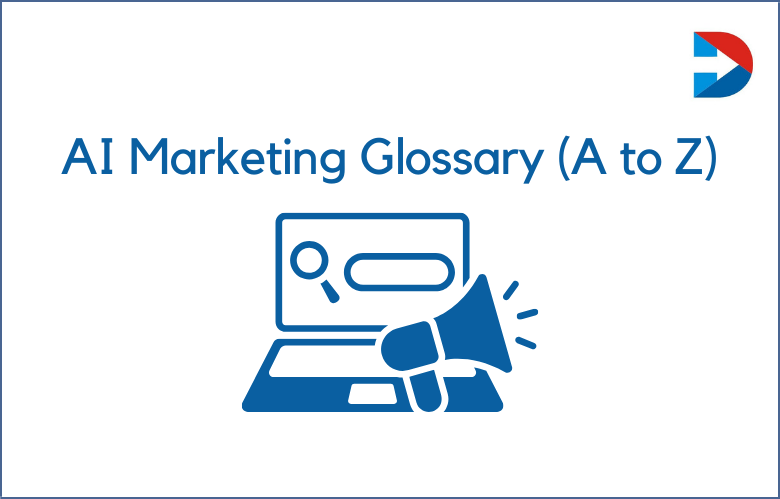In today’s world, advertising is everywhere we look. We are bombarded with advertisements on the internet, billboards, magazines, and television. Advertising is a powerful tool that can influence our decisions, but with great power comes great responsibility.
Advertisers need to make ethical decisions when creating advertisements. We’ll discuss the importance of advertising ethics and provide guidelines for ethical advertising decisions.
What is Advertising Ethics, and Why Should You Care?
Advertising is a powerful tool that can sway public opinion and influence consumer behavior. But what happens when companies use misleading or deceptive tactics to sell their products?
That’s where advertising ethics come into play. We’ll explore advertising ethics and its importance for businesses and consumers.
First off, let’s define what we mean by “advertising ethics.” Essentially, it refers to the moral principles and values that underpin advertising practices.
This includes things like honesty, transparency, and responsibility. Advertisers must act truthfully, accurately, and somewhat to the consumer. They should also avoid exploiting vulnerable groups or perpetuating harmful stereotypes.
It’s not just a matter of doing the right thing, either. Companies that prioritize advertising ethics are more likely to build trust with their customers, which can lead to increased loyalty and sales.
On the other hand, businesses that engage in deceptive practices can quickly lose their reputation and damage their bottom line. That’s why companies must pay attention to their advertising.
Why Advertising Ethics Matter: A Guide for Consumers and Marketers?
Advertising is all around us, from TV commercials to social media ads. But have you ever stopped to consider the ethics behind these messages?
Ethical advertising should address consumers’ needs while avoiding deceptive or manipulative tactics.
We’ll explore why advertising ethics matter and what consumers and marketers can do to ensure fair and transparent advertising practices.
The Importance of Advertising Ethics
Advertising ethics is essential for several reasons. First, ethical advertising builds customer trust and loyalty.
When customers feel they can trust a company, they are likelier to buy from them and recommend them to others. Second, ethical advertising protects consumers from false or misleading information.
Advertisers are responsible for ensuring that their advertisements are truthful and not deceptive. Honest advertising improves society by promoting social responsibility and positive values.
Understanding Advertising Ethics: Why It Matters in Today’s World
In a world where everything is driven by marketing and advertising, it’s critical to understand the ethics behind advertising. Advertising ethics refers to the set of moral principles and values that guide advertising practices and the behavior of advertising professionals.
It includes honesty, transparency, fairness, responsibility, and respect for people’s privacy. Advertising can be misleading, deceptive, and harmful without these ethical guidelines.
We will outline the importance of advertising ethics in today’s world, the potential consequences of unethical advertising, and the role of various stakeholders in promoting ethical practices in advertising.
Importance of Advertising Ethics:
Ethical advertising is essential for several reasons. Firstly, it protects consumer rights from false, misleading, or deceptive advertising practices. Secondly, it promotes healthy competition and ensures a level playing field for businesses of all sizes.
Thirdly, it helps build trust and credibility between businesses and their stakeholders, including customers, employees, shareholders, and regulators.
It aligns advertising practices with broader societal values and goals, such as sustainability, diversity, and social responsibility.
Consequences of Unethical Advertising:
The consequences of unethical advertising can be severe and long-lasting. For instance, it can lead to legal action, fines, and damage to a business’s reputation.
It can also cause harm to individuals, particularly vulnerable ones, such as children, older people, and those with disabilities. Unethical advertising can also damage the credibility of the advertising industry, leading to a loss of trust and confidence in advertising.
Role of Stakeholders in Promoting Ethical Advertising:
Several stakeholders have a role to play in promoting advertising ethics. Firstly, businesses must ensure that their advertising practices adhere to ethical standards and values.
This includes being honest, transparent, and respectful of consumer privacy. Secondly, regulators must enforce ethical standards and hold businesses accountable for non-compliance. Thirdly, consumers must exercise their rights and demand ethical business advertising practices.
Advertising professionals and industry bodies must educate themselves and the broader public on ethical advertising practices and promote them through guidelines, standards, and codes of conduct.
Examples of Ethical Advertising:
Several companies have set an example of ethical advertising practices. For instance, Dove’s ‘Real Beauty’ campaign challenged traditional beauty standards and celebrated diverse body shapes and sizes.
Patagonia’s ‘Don’t Buy This Jacket’ campaign urged consumers to buy less and reduce their environmental footprint. Apple’s ‘Privacy on iPhone’ campaign highlighted its commitment to user privacy and data security.
These campaigns communicated brand values and messages and aligned with broader societal values and goals.
Guidelines for Making Ethical Advertising Decisions
When making advertising decisions, it is essential to consider your advertisements’ impact on society. The following are some guidelines for making ethical advertising decisions:
Be truthful:
Advertisements should not contain false or misleading information. This includes not making exaggerated claims or using deceptive images or graphics.
Protect vulnerable groups:
Advertisements should not target vulnerable groups such as children or older people. They should also not promote harmful products or behaviors such as smoking or excessive drinking.
Be socially responsible:
Advertisements should promote positive values and contribute to a better society. This may include promoting sustainability or social justice.
Respect cultural diversity:
Advertisements should be respectful of cultural differences and not promote stereotypes or discrimination.
Examples of Unethical Advertising
Unfortunately, not all advertisements are created ethically. Some advertisers may use tactics that are dishonest, misleading, or harmful. Here are some examples of unethical advertising:
False or misleading information:
This could include using statistics that are not accurate or making claims that are not supported by scientific research.
Targeting vulnerable groups:
This could include advertising products that are harmful to children or using tactics that exploit older people.
Promoting negative values could include promoting sexism, racism, or other forms of discrimination.
How to Avoid Unethical Advertising
To avoid unethical advertising, being aware of the guidelines and staying true to your values is essential. Here are some tips for avoiding unethical advertising:
Do your research:
Make sure that the claims made in your advertisements are accurate and supported by scientific research.
Consider your audience:
Think about how different groups of people will receive your advertisements. Do not target vulnerable groups or promote harmful products or behaviors.
Stay true to your values:
Your advertisements should reflect your company’s values and contribute to a better society. Do not promote negative values or engage in dishonest tactics.
Conclusion:
Advertising ethics is an important topic that affects all of us. As consumers, we want to trust the advertisements we see and make informed decisions based on truthful information.
As advertisers, we promote positive values and contribute to a better society.
By following the guidelines and staying true to our values, we can make ethical advertising decisions that benefit everyone. So, let’s commit to honest advertising and create a better world together.
The consequences of unethical advertising can be severe and long-lasting, leading to legal action, reputation damage, and societal harm.
Therefore, all stakeholders, including businesses, regulators, consumers, and advertising professionals, have a role to play in promoting ethical advertising practices.
Companies that embrace ethical advertising can reap business benefits and contribute to the broader goals of sustainability, diversity, and social responsibility.




